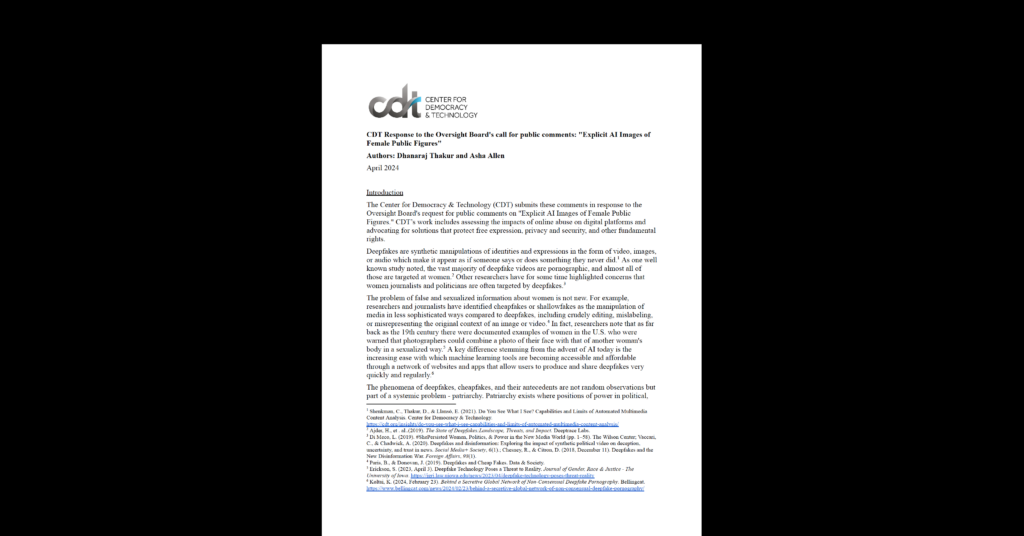CDT Supports Open Platforms in Herrick v. Grindr
Yesterday, CDT joined the Electronic Frontier Foundation in filing an amicus brief in the Court of Appeals for the Second Circuit in Herrick v. Grindr. The case involves important support of Section 230 of the Communications Decency Act (“Section 230”).
The case arose when Appellant Matthew Herrick’s former partner repeatedly used Grindr, a dating app, to impersonate and harass Herrick. After the relationship ended, Herrick’s partner created fake profiles impersonating Herrick on Grindr, and used the profiles to communicate with other men on the platform, falsely informing men of Herrick’s sexual fantasies and directing the men to Herrick’s home and workplace to meet in person.
Herrick sued Grindr and obtained a temporary restraining order (“TRO”) mandating that Grindr immediately disable all impersonating profiles created under Herrick’s name or with identifying information relating to Herrick, or with his photograph, address, phone number, email account or place of work. Grindr removed the case to federal court, where the Southern District of New York denied Herrick’s attempt to extend the New York Supreme Court’s TRO, finding that Section 230 shielded Grindr from liability on many of the charges.
Because Herrick’s claims attempt to hold Grindr liable under tort law as a direct result of harm caused by user-generated content created by Herrick’s former partner, Section 230’s immunity must apply. Our amicus brief argues that placing liability on Grindr would severely undercut the essential role all online platforms play in fostering our modern political and social discourse. The brief explains:
Instead of making open forums for participation by users around the world— a quintessential feature of Internet intermediaries—online platforms, saddled with potential or explicit liability based on the content their users post, would likely screen user-generated content to avoid the risk that their users might post offensive content that will create liability for the companies. And companies would take down any and all content that drew any complaint—especially by those complainants with resources to fund litigation—just as Congress feared, which was what prompted it to pass Section 230. These overreactions could include reviewing all content users intend to post and preventing any potentially controversial comments or criticism from being published in the first place, and removing accounts whose content drew objections—potentially far beyond the harassing content at issue here.
This is an important case for Section 230, and we hope the Second Circuit will continue to enforce the law. The full brief can be found here.
The Second Circuit agreed with CDT and dismissed the case, citing to this order.


